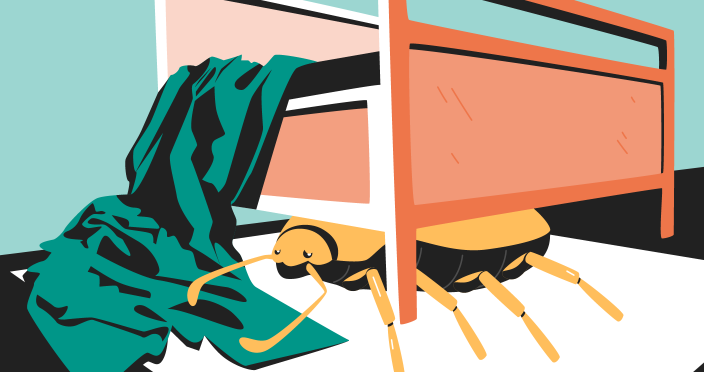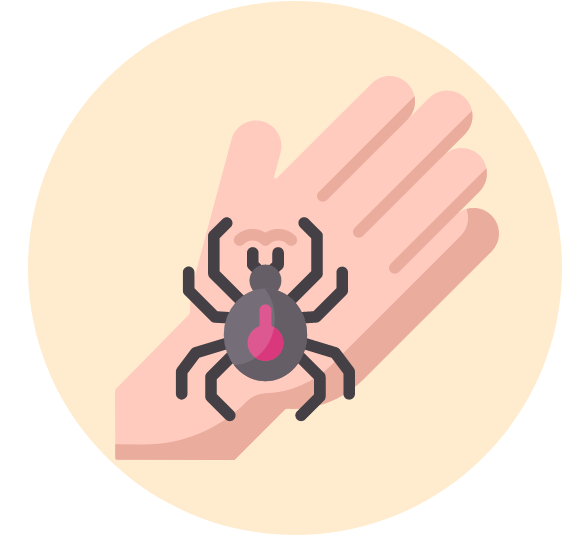Chapter 3 of The Metamorphosis by Franz Kafka describes the climax of Gregor Samsa’s tragic transformation and highlights how dysfunctional his family is. This part introduces the lodgers —three gentlemen who rent a room in the Samsa family’s apartment, helping the family resolve its financial struggles now that Gregoris unable to work. The lodgers symbolize societal judgment and indifference in The Metamorphosis.
If you want to read a more detailed The Metamorphosis part 3 summary, check out this page. Here, you will get to know who the lodgers are and what their role is in the Samsa family’s moral decline. Our guide will not only provide you with a concise chapter 3 Metamorphosis summary but also help you dig deeper into the symbolism and themes of Kafka’s novella.
🏡 The Metamorphosis Chapter III Summary
The third and last Chapter of The Metamorphosis starts with the description of the serious injury, which was done to Gregor by his father. His freedom of movement is drastically reduced, as “it took him long, long minutes to creep across his room like an old invalid.” The apple has been stuck on his body, giving him much discomfort and pain. It reminds him of his poor decaying state.
All the family members are now occupied with their new jobs. Mr. Samsa keeps working in the bank while Mrs. Samsa is sewing clothes for retail. Grete is now employed a full day at the sales department. In the evenings, they open Gregor’s door, so he can watch and listen to what is happening in the living room. As Gregor observes them, he realizes that the evenings have become even quieter. The family seems tired. After work, the father keeps falling asleep in his chair in the uniform while the women attend to their house duties.
Still, despite working tirelessly, the family cannot maintain some of its amenities. They switch their full-time maid for a charwoman, who comes twice a day. Gregor also notices how dirty his father’s uniform has become, as “Gregor often spent whole evenings gazing at the many greasy spots on the garment.”
The busyness of the family leaves Gregor neglected. Grete now barely cleaned his room. “Streaks of dirt stretched along the walls, here and there lay balls of dust and filth.” The food brought to Gregor was often left untouched, as he was losing his appetites at the sorry sight of his family’s affairs. Nevertheless, Grete “jealously guarded her claim to be the sole caretaker of Gregor’s room.” She even scolded her mother once for bridging a bucket of water to clean the bedroom. Gregor now “hissed loudly with rage” at every sound of disturbance.
As Gregor’s state worsened, he could not understand why Grete would not let the old charlady clean his room. She did not have any disgust towards Gregor and quite often opened the room’s door out of curiosity. Even when Gregor tried to spring at her aggressively, the charwoman did not flinch.
As time passed, Gregor ate even less. The family now started to move many things in his room and store them there. One day, he saw a group of three lodgers move into one of the rooms. “These serious gentlemen-all three of them with full beards” were obsessed with order and cleanliness in the household. “Superfluous, not to say dirty, objects they could not bear.” Due to the fact that the lodgers had brought most of their furniture with them, Gregor’s room piled up with even more things.
One evening the lodgers hear Grete practicing on her violin. The family is, at first, worried that it might disturb their routine, but the lodgers ask the family if “Fraulein Samsa” could come and play for them. As Grete starts playing, the parents do not even venture down to sit on their chairs out of an “exaggerated idea of the courtesy due to lodgers.”
Upon hearing those beautiful sounds, Gregor crawls out of his bedroom to fully appreciate the concert. Covered in dust, he gets dangerously close to everyone in the living room. Gregor is mesmerized by the charm of the melody. He imagines calling out to his sister and telling her everything about his plans to send her to the best Conservatorium in the city.
Soon enough, one of the lodgers spots Gregor’s presence. It upsets all three of them significantly. They demand an explanation from the father. In horror, Mr. Samsa tries to hastily push the lodgers in their room, refusing to give any reason for the monstrous bug-like creature. The boarders assert that they will not pay anything for their stay “because of the disgusting conditions prevailing in this household.”
The bad news unnerves the family, and Mrs. Samsa unintentionally drops the violin, breaking it. This becomes the last straw for Grete, who finally says that “things can’t go on like this” and that they must dispose of the vermin. The rest of the family agrees.
Gregor, hearing everything they said, creeps back into his room. He contemplates in a dire situation, feeling much weakness in his body. Gregor Samsa dies soon after, as “his head sank to the floor of its own accord and from his nostrils came the last faint flicker of his breath..”
The charwoman enters Gregor’s room the next morning, only to find his lifeless body. She calls the family to come and see it. At the same time, the lodgers wake up and demand breakfast. Mr. Samsa orders them to leave “at once” and practically kicks them out.
The family decides to take a day off from their jobs and go to the countryside for fresh air. They feel relieved and decide to move to a smaller flat, realizing how fortunate they are to have steady jobs. The parents also notice that Grete, despite recent events, “had bloomed into a pretty girl with a good figure.” Mr. and Mrs. Samsa decide that it is time to find a husband for their daughter. The future looks bright for the family.
🎭 Active Characters
Gregor Samsa, Grete Samsa, Mr. Samsa, Mrs. Samsa, Charwoman, Lodgers
🔥 Active Themes
📅 The Metamorphosis Chapter III Analysis
From the beginning of the chapter, it is clear that the Samsa family’s financial and emotional situation keeps decaying. Even though all of the family members are now working, their finances are not improving. They have to get rid of the maid and employ a cheaper charwoman. It is possible to assume that through this excerpt, Franz Kafka criticizes the working conditions in Europe in the early XXth century. The majority of the middle to poor classes worked tirelessly, receiving little pay for their struggles. Consequently, numerous worker strikes took place in a number of European nations, including Austria-Hungary, where Kafka lived.
The struggles of the Samsa family also affect their relationship with Gregor. As they become busier with work, they start to neglect Gregor’s presence. One of the few considerate actions they keep doing is leaving the door open during the evenings, so Gregor can watch and hear them. This last humane act serves as a reminder that, despite growing emotional separation, the Samsa family still tries to regard him as a person in a bug-like form.
At first, Gregor understands everything and tries to get by but soon starts to get frustrated with the lack of their concern, as his metamorphosis influences his mind. This frustration grows even bigger when the Samsas take up a group of lodgers in hopes of resolving their financial problems. The newcomers bring their furniture, so the family members move more unwanted things into Gregor’s room.
The lodger’s arrival may symbolize further disconnection between Gregor and his family, as the lodgers can financially support the Samsas in exchange for cleaning after them. This very same pattern used to exist between Gregor and his family during his working years.
Even though Gregor’s room and needs become more neglected, his sister Grete does not allow anyone else to take the responsibility of looking after Gregor. She now solemnly protects her “right” to watch over Gregor, as it gives her a feeling of dominance and control. Through Grete’s negligence of her brother’s life that her loathing towards him keeps growing. She subconsciously starts thinking of him more like an insect rather than a human or her brother.
Meanwhile, the freshly hired charwoman seems to be not afraid or disgusted by Gregor. The explanation could lie in several things. Firstly, she never saw Gregor in his human form, so she does not have an emotional connection with him. She simply calls him “old dung beetle” every time she visits his bedroom. Secondly, the charlady comes from the lower classes, so her rude behavior towards an insect-like creature is understandable. Finally, she could simply treat Gregor as she treats everybody else, making her more humane than anyone in the family.
The concert scene is one of the most critical scenes in the novel because it serves as a culmination of the chapter and story as a whole. Gregor unintentionally interrupts Grete’s performance as one of the lodgers spots his dusty figure on the floor. This surreal creature is unacceptable for strict and organized lodgers. They even declare that they will not pay anything for their whole stay.
Gregor’s interruption of the concert was undoubtedly accidental, as he was completely mesmerized by the beautiful sound. The violin and its melody are some of the essential symbols in The Metamorphosis. It reminds Gregor of his humanity and makes him question his bug-like existence.
Unfortunately, Gregor’s appearance at the concert becomes the boiling point for Grete’s patience. She says that “things can’t go on like this” with the vermin in the house and that they must get rid of “it.” Grete’s disgust with Gregor increased steadily throughout the novel. Her reaction to the appearance of her brother at the concert suggests that she simply cannot bear anymore the burden of seeing the creature that used to be her brother. Grete easily persuades her parents that they must dispose of “it.” They assume that the insect cannot understand them.
At the same time, even after so many heart-shattering words, Gregor is still obsessed with the idea of becoming human again and providing for his family. In his insectoid state, he is no more dependent on his family than they used to be on him. Yet, he never gave up on them. Thus, Gregor has all the qualities of an altruistic person.
However, the conversation after the concert heavily impacted Gregor’s health, as “his whole body was aching.” It is true that words can directly affect a person’s body and health. Numerous scientific studies and articles proved that health is interconnected with the mind. Quite often, a person can get sick from emotional struggles instead of a virus.
Nonetheless, Gregor lacks any anger towards his family but rather only cares about their well-being even at the brink of his death. It confirms the theory mentioned above about Gregor being a true altruist.
Gregor feels more like a human after the concert. He now realizes how much he missed the outside world. During the concert, his desires switch back from caring about food and hissing at people to wishing he would transform back and support his family. However, all those thoughts happen within the context of his insect body, making the metamorphosis complete. He realizes that he has to disappear.
The Metamorphosis ending description by Kafka shows that Gregor’s death resolved the tension in the family and brought back the sympathy towards him, as he was no longer a burden. Instead, the Samsas remembered that he was once a son, brother, and, most importantly, a human. The father orders the lodgers to leave since they should not be present in such a private event. Also, the family loses their interest in the lodgers because they refused to pay anything for their stay. They also may feel shame for preferring the newcomers to their, now deceased, son and brother.
To summarize all of the above, The Metamorphosis is a story about the realities of the modern world. People tend to become “inhumane” while pursuing financial and social comfort. They also have to move on after tragedies and think about more pressing matters, such as work, education, marriage, etc. The Metamorphosis ending’s meaning proves this point. It is evident from the last scene where the Samsa family makes new plans for their life.
Thanks for reading! You can check the analysis of the whole plot or explore The Metamorphosis symbols in detail.



